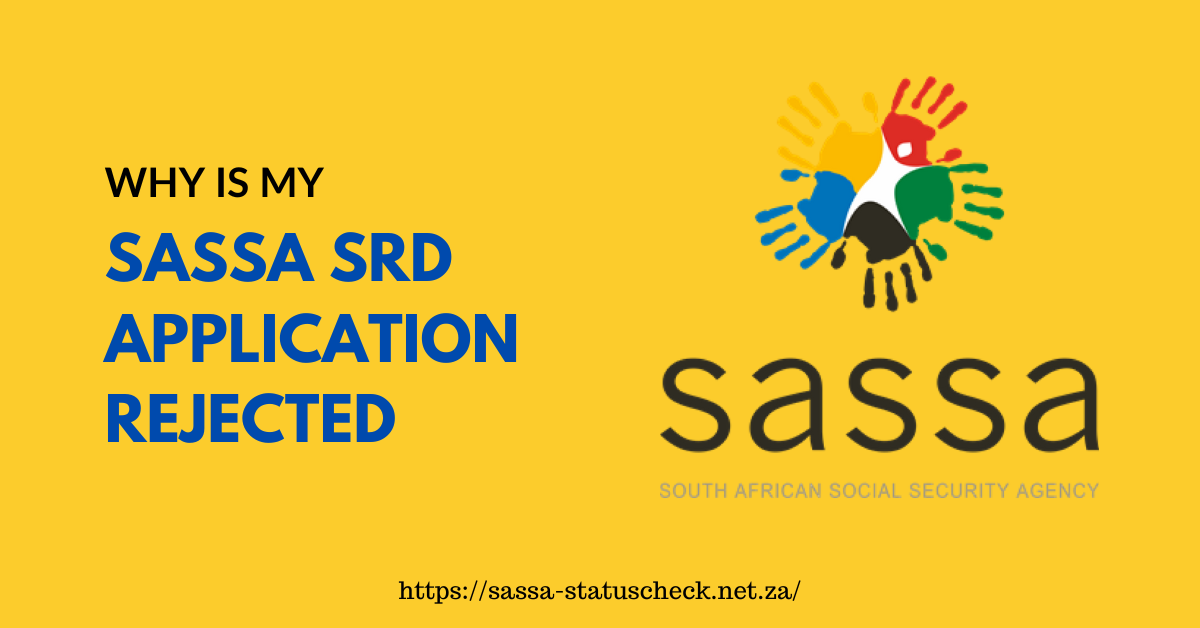The South African Social Security Agency (SASSA) Special Relief of Distress (SRD) grant has been a crucial lifeline for many during challenging times. However, the application process can be complex, and applicants sometimes find their submissions rejected without a clear understanding of the reasons behind it. In this article, we will explore common reasons for SASSA SRD application rejections and provide valuable insights to help applicants navigate the process successfully.
Incomplete or Incorrect Information:
One of the primary reasons for SASSA SRD application rejections is incomplete or incorrect information provided during the application process. It is crucial to ensure that all fields in the application form are accurately filled out, including personal details, contact information, and financial details.
To avoid this issue, applicants should carefully review the application form before submission and double-check all entered information. Any errors or omissions may lead to automatic rejection.
Ineligibility Criteria:
SASSA SRD grants are designed to assist individuals who are in dire need of financial relief. Applicants must meet specific eligibility criteria, such as being unemployed, not receiving any other form of income, and facing economic distress. Failure to meet these criteria may result in rejection.
Prospective applicants should carefully review the eligibility requirements outlined by SASSA before applying. If there is any doubt about eligibility, seeking guidance from SASSA offices or community centers can provide clarification.
Duplicate Applications:
Submitting multiple applications for the same grant by a single individual can lead to automatic rejection. SASSA is diligent in preventing abuse of the system and has measures in place to identify and reject duplicate applications.
To avoid this issue, applicants should refrain from submitting multiple applications. If there are concerns about the status of a submitted application, it is recommended to contact SASSA directly for assistance.
Documentation Errors:
SASSA may request supporting documentation to verify the information provided in the application. Failure to submit the required documents or providing inaccurate documentation can lead to rejection.
Applicants should carefully review the list of required documents and ensure that all necessary paperwork is included with the application. Providing accurate and up-to-date documentation is essential for a successful application.
System Glitches or Technical Issues:
In some cases, SASSA SRD application rejections may occur due to technical issues or system glitches. These issues could be on the applicant’s end or within the SASSA system itself.
If an applicant suspects that a rejection is due to a technical problem, it is advisable to reach out to SASSA customer support for assistance. They can provide guidance on resolving technical issues and offer insights into the status of the application.
Conclusion
Understanding the reasons behind SASSA SRD application rejections is crucial for applicants seeking financial relief. By ensuring the accuracy and completeness of information, meeting eligibility criteria, avoiding duplicate applications, providing necessary documentation, and addressing potential technical issues, applicants can enhance their chances of a successful application. For further assistance, individuals are encouraged to contact SASSA directly or visit their local SASSA offices for personalized support. The SRD grant is a valuable resource, and with careful attention to the application process, eligible individuals can access the financial assistance they need during challenging times.

